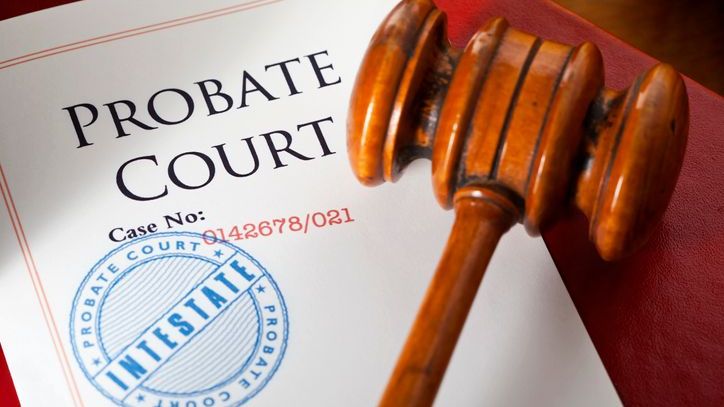If you’re planning your estate, you may be wondering how to avoid probate – the court-administered process for validating a will, settling debts and distributing assets following someone’s death. In Maryland, like other states, there are strategies and estate planning moves you can make now to ensure your property bypasses probate and automatically transfers to your loved ones upon your passing. Living trusts, joint ownership and beneficiary designations are all avenues to avoiding probate in the Old Line State.
If you need help planning your estate, speak with a financial advisor to see how they can help. Connect with fiduciary advisors today.
Maryland Probate
Probate is a legal process that’s triggered following an individual’s death. This process involves the validation of the deceased person’s will in court, identification and appraisal of the deceased’s assets, settlement of any debts and taxes, and ultimately, the distribution of the remaining assets as instructed by the will. If no will exists, state law dictates how the property is distributed.
Probate is a safeguard against fraudulent activities post-death by freezing the estate until a judge verifies the will’s legitimacy, ensures all relevant parties have been notified, all assets have been identified and appraised, and all debts and taxes have been paid. Once these steps are done, the court issues an order to distribute the assets, and the estate is officially closed.
However, probate in Maryland can potentially be a lengthy and expensive procedure. The duration hinges on the complexity of the estate, but it typically ranges from six months to a year or even longer in some instances.
The state of Maryland may charge a probate fee for the processing of an estate. This fee is calculated based on the gross size of the estate. It can range from as little as $100 to as much as $10,000 for estates worth between $7.5 million and $10 million. For estates that exceed the $10 million threshold, the estate pays a $10,000 fee plus 0.02% on any value above $10 million. For example, an $11 million estate may be charged a $30,000 probate fee.
How to Avoid Probate in Maryland

When an estate goes through probate, it becomes part of the public record. For some, avoiding probate is about maintaining their privacy and ensuring their estate doesn’t become public.
Luckily, there are several strategies available for bypassing probate in Maryland. These include creating a living trust, using joint ownership, setting up payable on death designations for bank accounts and using transfer on death designations for securities and vehicles. If these sound complex, don’t worry, we’ll explain each of these strategies in detail.
Create a Living Trust
A living trust is a legal entity created by an individual, known as the grantor, during their lifetime. The grantor transfers ownership of their property into the trust, which a trustee (usually themself) then manages. Transferring the property into the trust removes it from the grantor’s probate estate upon their death. Living trusts are revocable, meaning you can move property into and out of them. However, when you die, the trust becomes irrevocable, and as a result, bypasses the probate process.
In Maryland, a living trust allows property to bypass probate and pass directly to the beneficiaries. Establishing a living trust requires drafting a trust document, naming a trustee, and transferring property into the trust.
But remember, while a living trust can be beneficial, it also requires you to transfer ownership of your property to the trust, which could have implications on your control over the property while you’re still alive.
Use Joint Ownership
Joint ownership can be a beneficial strategy in certain situations. It is a legal status where two or more individuals share ownership rights of a specific property. Upon the death of one owner, their share of the property automatically passes to the surviving owner(s). This bypasses the probate process, effectively avoiding potential delays and costs.
In Maryland, two forms of joint ownership can avoid probate: Tenancy by the entirety (limited to married couples) and joint tenancy with the right of survivorship. In both cases, the surviving owner automatically inherits the deceased owner’s share of the property, bypassing the need for probate. However, it’s worth noting that joint ownership implies shared control over the property, which might not suit everyone’s circumstances.
Use Payable on Death Designations for Bank Accounts
A payable on death (POD) designation for your bank account a simple way to keep savings accounts and certificates of deposit (CDs), out of the probate process. By naming a beneficiary, that person will automatically inherit that account following the original owner’s death.
In Maryland, setting up a POD designation typically involves filling out a simple form provided by the bank, making it an easy and effective strategy for avoiding probate for bank accounts.
Keep in mind that POD designations will supersede your last will and testament. For example, if you name one person as a POD beneficiary of your savings account but your will says someone else will inherit it, the beneficiary designation will trump the will.
Use Transfer on Death Designations for Securities
A transfer on death (TOD) account is an investment account that allows the account holder to name beneficiaries. Like a POD account, the assets in a TOD account pass directly to the named beneficiaries when the account holder dies, bypassing probate.
In Maryland, TOD designations can be applied to individual brokerage accounts, mutual funds and bonds. It involves filling out a form provided by the brokerage company to set up the TOD designation.
Like POD accounts, TOD designations supersede your last will and testament.
Use Transfer on Death Designations for Vehicles
Maryland does not permit transfer on death deeds for real estate, but the state does allow vehicle owners to use a transfer on death (TOD) designation for their vehicles. When the vehicle owner dies, the vehicle can be transferred directly to the beneficiary without going through probate, thus avoiding any potential delays or costs associated with probate.
The process for naming a beneficiary of your vehicle’s title is simple. You can do so online through the state’s motor vehicle administration website. The vehicle must be solely owned and titled in Maryland, and only one beneficiary can be included on the title.
Small Estate Probate in Maryland

Maryland law offers an alternative for smaller estates, known as small estate probate. Small estates may not require going through the full probate process. Instead, they can file a petition for administration of small estate, a simplified probate procedure available for eligible estates. This process is less complex and quicker than regular probate.
An estate can qualify for small estate probate in Maryland if:
- The value of the assets subject to probate is less than $50,000
- The value of the assets subject to probate is less than $100,000 and the spouse is the sole legatee or heir
Take note: These limits do not include real estate or certain other types of assets. The legatee refers to a person who inherits property under a will.
The benefits of small estate probate include quicker distribution of assets to heirs and reduced court and legal fees. However, it’s important to bear in mind that small estate probate is not an option if the deceased owned real estate in his or her name.
Bottom Line
Strategies to avoid probate in Maryland include setting up a living trust, establishing joint ownership and utilizing payable or transfer on death designations. Each strategy has its implications and suitability, depending on the specifics of your estate and your personal preferences. Therefore, you may want to seek professional advice on navigating the intricacies of estate planning and probate in Maryland.
Estate Planning Tips
- The most important element of an estate plan is arranging for the care of your minor children, if you have any. While a living trust shields property from probate, a will is needed to assign a guardian to care for your children.
- A financial advisor who specializes in estate planning can help you plan your estate so your heirs don’t have to go through probate following your death. Finding a financial advisor doesn’t have to be hard. SmartAsset’s free tool matches you with up to three vetted financial advisors who serve your area, and you can have a free introductory call with your advisor matches to decide which one you feel is right for you. If you’re ready to find an advisor who can help you achieve your financial goals, get started now.
Photo credit: ©iStock.com/rarrarorro, ©iStock.com/, ©iStock.com/
